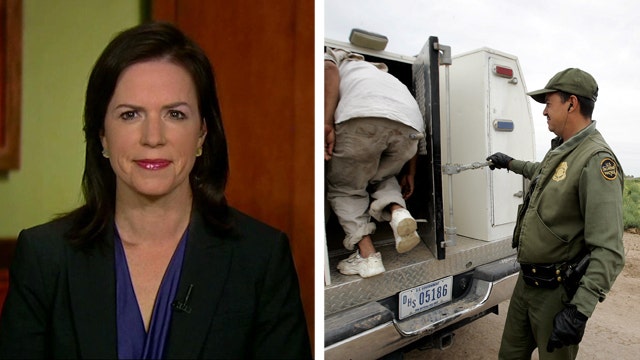A union representing hundreds of federal Citizenship and Immigration Services employees is concerned that House leaders will abandon the Republican-led chamber’s incremental approach toward illegal-immigration reform for the sweeping changes passed in the “extremely dangerous” Senate bill.
“I worry the House may be following a similar path,” Kenneth Palinkas, president of the National Citizenship and Immigration Services Council, said recently.
Palinkas said the union’s major concerns are that House leaders might be trying to “advance proposals to open citizenship benefits to the majority of those here illegally, in combination with proposals to expand visa programs.”
He said the union also is concerned that House and Senate members will meet -- in what is known on Capitol Hill as “conference” -- to merge or “blend” the House bill “with the extremely dangerous Senate bill.”
Palinkas said the union is basing its concerns in part on media reports about Republican Reps. Paul Ryan, Wis.; Majority Leader Eric Cantor, Va.; Bob Goodlatte, Va., chairman of the House Judiciary Committee, and Illinois Democratic Rep. Luis Gutierrez.
Goodlatte could not be reached for comment Sunday. However, his stated stance on immigration reform is that the system is “broken” and that the way for Congress to remedy the problem is to “methodically look at each of the various components that need to be fixed and take any final bill through the traditional legislative process.”
“Immigration reform is too important and complex to not examine each piece in detail,” he states on his official website. Goodlatte also argues the House has already passed several stand-alone bills, including one on enforcing immigration laws and another on guest-worker programs.
The union, which represents 12,000 United States Citizenship and Immigration Services adjudications officers and staff, argues sweeping reform that could provide a path to citizenship for some of the estimated 11 illegal aliens now living in the United States would hurt adjudication officers “in their attempts to protect our nation’s security and the American taxpayer.”
Palinkas says the plans are being pursued before reforming the USCIS, which reviews millions of green card, temporary visa and citizenship applications.
He said the union is also worried about a part of immigration reform known as the KIDS Act and the accompanying argument that immigration law should not be applied to young illegal immigrants.
The concern, Palinkas says, is that the same argument might become precedent.
“If it is improper to apply immigration law to one specific group of illegal aliens, then why should we expect future illegal aliens in this group to be treated any differently?” he asks.













































